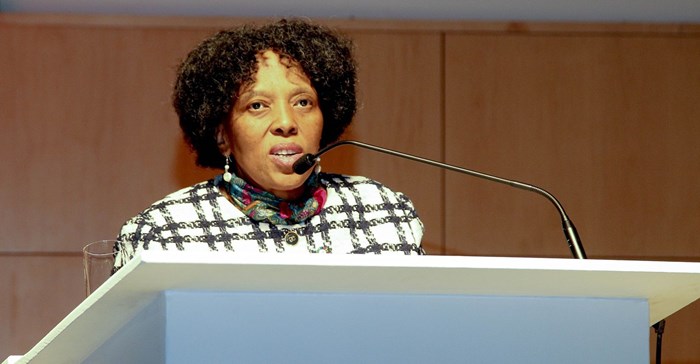National Health Insurance (NHI) will focus on preventing non-communicable disease (NCDS) and meeting the health needs of South African children, based on the findings from the pilot phase of the programme.

Dr Precious Matsoso, director general, South African National Department of Health
“With at least 3.2m children screened for the NHI pilot phase between April 2014 to March 2017, at least 500,004 were found to experience oral health issues, eyesight problems, hearing and speech problems.
“One of the findings from the pilot phase shows the high prevalence of stunting, with 27% of children under five considered stunted and 10% severely stunted,” said Dr Precious Matsoso, director general, South African National Department of Health, in her keynote address at the Board of Healthcare Funders (BHF) Conference.
“This is presenting a challenge to the Department of Education, as we are giving teachers children with hearing and sight problems, and waiting for them to be adults. This is a big problem, and South Africa cannot afford to sit back and not respond to the healthcare needs of vulnerable groups,” she said.
“For this reason, we must prioritise and respond to the healthcare needs of South Africa’s children, and the National Health Insurance will go a long way towards the first steps to providing healthcare access.
“Immediate interventions are necessary, and we need to start with the 500,000 and the 3.2m learners that were identified during the pilot phase, and expand further to other vulnerable groups. We cannot postpone. For us to be a successful and responsive nation, we need to work collectively as public and private sectors and civil society, together with development partners.”
National Health Commission
The Department of Health is looking to set up a National Health Commission.
“NHI will not be affordable unless we deal with health promotion and prevention, and the role of the commission will be to assist in dealing with the risk factors that drive our non-communicable diseases, and put in place the necessary structures for setting up the NHI.
“The plan is to create an interim structure for the NHI, where we have a CEO who runs the system with a team of people. Our aim is to upskill, reskill and invest in our people to get them ready for NHI. This will require conscious efforts from academic institutions as well, as they would have to deliver on this capacity.
“With six million South Africans who have immediate healthcare needs that have not been met, we cannot talk about economic transformation when we cannot meet the basic healthcare needs of people,” noted Matsoso.
Legal reform
Within the legislative framework, a number of laws need to be amended, in particular the South African National Health Act and the Medical Schemes Act. Currently a draft bill has been published for commentary, and the Department of Health is inviting all in the healthcare sector, civil society, the public, and interested parties to submit commentary by 31 July 2017.
“We also need to identify areas where we can consolidate various schemes, and this is going to be a process that involves schemes. Our aim is to create a structure that involves the Department of Health, the medical scheme industry, and the Council for Medical Schemes (CMS) to ensure that this reform is a success.”



































